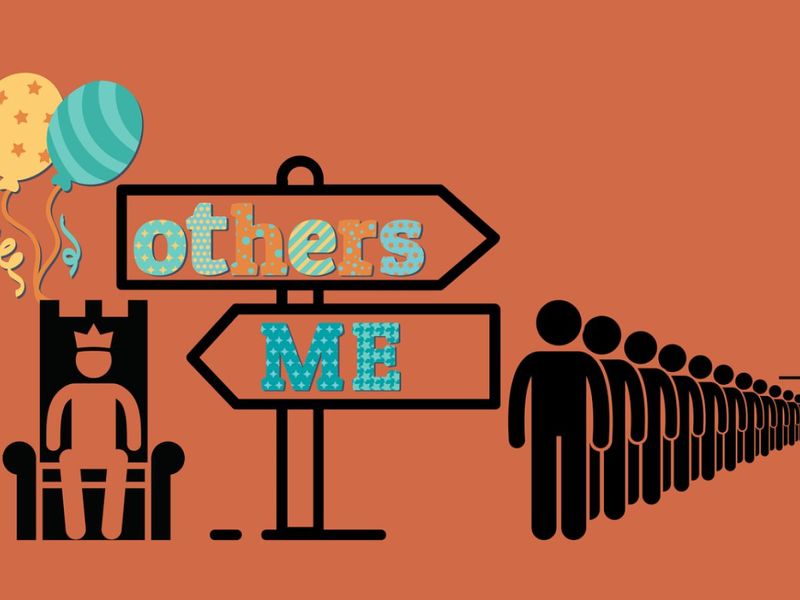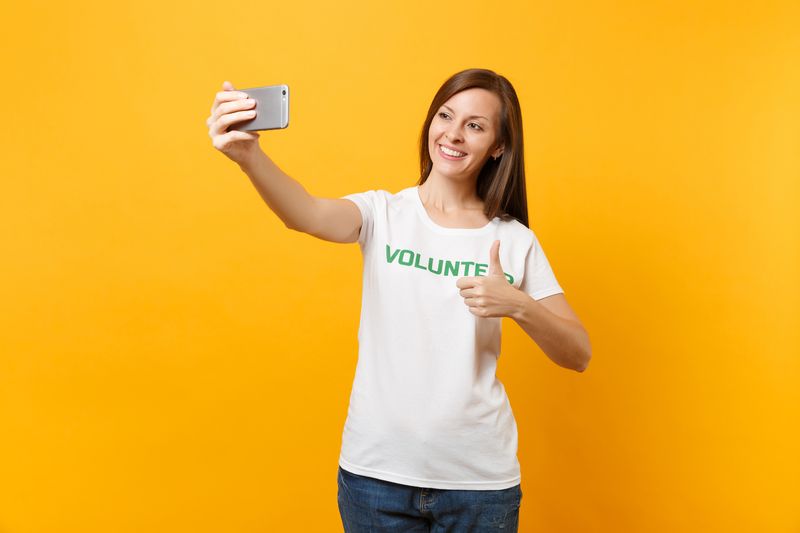17 Behaviors That Look Like Kindness But Are Actually Pure Narcissism
Not all “nice” people are truly kind. Some kindness comes with strings. Some generosity hides a motive. And sometimes, what looks like caring on the surface is actually a performance rooted in control, ego, or manipulation.
Narcissists are masters at disguising selfishness as selflessness. Here are 15 behaviors that seem kind—but are actually red flags for narcissistic behavior.
1. Giving gifts to earn loyalty or admiration

It may seem generous when someone showers you with gifts, but there’s often an unspoken expectation attached. This isn’t true generosity; it’s a transaction. You’re expected to “owe” them now. The act of giving becomes a tool for manipulation, where the receiver feels indebted or obliged.
This behavior speaks less about kindness and more about control, where the act of giving is twisted into a method of securing loyalty or admiration. It’s important to recognize the difference between thoughtful gift-giving and gifts given with strings attached. Look closely at the intentions behind the action.
Authentic kindness doesn’t need a return on investment; it thrives in genuine care and selflessness. If you find yourself feeling pressured or guilty after receiving a gift, it might be time to question the giver’s true motives. Trust your instincts and evaluate the situation carefully.
2. Doing favors they didn’t ask if you needed

Imagine a friend who shows up uninvited to clean your house or fix a leaky faucet, seemingly out of the goodness of their heart. Yet, later, they remind you of these favors, expecting gratitude or compliance. This tactic is a classic form of control disguised as helpfulness.
By taking charge and performing unsolicited favors, they create a sense of obligation. The recipient ends up feeling beholden and trapped in a cycle of indebtedness. It’s essential to recognize that true kindness respects boundaries and asks permission before intervening.
When someone consistently offers unsolicited help, it might be less about your needs and more about their desire to control or gain favor. Be wary of those who keep score, using favors as currency for compliance or admiration. True kindness asks, listens, and respects your choices without expecting anything in return.
3. Public praise, private cruelty

In public, they’re all smiles, showering you with compliments, making you feel like the center of their world. Behind closed doors, however, the mask slips. The loving words turn into criticism, and the praise dissolves into disparagement. This behavior is a hallmark of narcissistic manipulation, where public adoration serves as a facade.
It’s not about genuinely valuing you but crafting an image that boosts their ego. This duality creates confusion and self-doubt, trapping you in a cycle of questioning your self-worth. It’s vital to recognize the inconsistency between their public and private personas. True care and respect remain consistent, whether in public or private.
Don’t ignore the red flags of private cruelty. Trust your feelings and demand consistent respect and kindness, regardless of who’s watching. Remember, genuine respect doesn’t change with the audience. Evaluate if their behavior aligns with their words in all settings.
4. Volunteering just to be seen as a “good person”

Volunteering is a noble act when driven by genuine intent. However, for some, it’s merely a performance to craft an image of benevolence. They might show up at events, more interested in capturing the moment for social media than making a real impact. This behavior highlights a desire to be seen as a “good person” rather than actually doing good.
It’s a narcissistic tendency where the focus shifts from the cause to personal image. Authentic volunteerism is about humility and service, not hashtags and photo opportunities. When someone’s volunteering seems more about them than the cause, it’s essential to discern their true motives.
Real contribution doesn’t seek validation or applause. Ask yourself if their actions align with their words and whether their presence genuinely aids the cause or just their ego. True kindness is quiet and doesn’t demand the spotlight. Evaluate the impact, not the image.
5. “Saving” people who didn’t ask to be rescued

There’s a certain allure in being the hero, the one who swoops in to save the day. But when someone constantly positions themselves as your rescuer without your consent, it’s a red flag. This behavior is often about feeding their need to feel important rather than genuinely helping.
You might find yourself in situations where solutions are imposed on you, stripping away your autonomy. It’s critical to recognize the difference between genuine support and unsolicited intervention. True help respects boundaries and asks for permission before intervening.
If you feel overshadowed or controlled by their constant rescuing, it might be time to reevaluate their motives. Genuine support empowers you, allowing you to decide when and how you want help. Trust yourself to recognize the difference between a helper and a hero complex.
6. Constantly reminding you of everything they’ve done for you

Ever feel like you’re being weighed down by a running tab of favors? Some individuals have a knack for cataloging everything they’ve ever done for you, subtly reminding you of your debt. This isn’t generosity; it’s leverage. True kindness doesn’t keep score. It doesn’t hold past favors over your head like a looming cloud.
This behavior aims to create dependency and control, ensuring you feel eternally indebted. It’s essential to differentiate between genuine kindness and manipulation disguised as remembrance. Authentic care doesn’t need constant reminders.
If you feel guilty or burdened by their so-called generosity, it’s a sign to reassess their intentions. True kindness is freely given, without expectation of repayment or acknowledgment. Trust your instincts to identify genuine support.
7. Saying “I only want what’s best for you” while making you feel small

The phrase “I only want what’s best for you” can sound comforting, but when followed by actions that belittle or undermine, it’s a veiled attempt at control. This behavior often translates to: “I want what I think is best for you,” ignoring your autonomy. It’s a classic tactic used to exert influence under the guise of care.
While it seems nurturing, it strips away your voice, making you feel small and powerless. It’s crucial to recognize when advice is genuine or when it’s a tool for manipulation. True support uplifts and empowers without diminishing your worth.
If their words consistently make you doubt yourself, it’s time to assess their intentions. Real care respects your choices and encourages your growth. Trust your instincts and evaluate if their advice aligns with your goals. Genuine support fosters independence, not dependency.
8. Helping publicly but criticizing privately

In the public eye, they’re the epitome of kindness, always ready to lend a hand or offer praise. Yet, when no one’s looking, their demeanor shifts. The same words of encouragement turn into criticism and nitpicking. This behavior creates a confusing dynamic, where you’re left questioning your worth.
It’s a hallmark of narcissism, where the public persona is crafted for admiration while the private persona reveals true intentions. Genuine kindness remains consistent, whether in a crowd or alone. It’s vital to notice the disparity between public praise and private put-downs.
Authentic care doesn’t need an audience; it thrives in the consistency of words and actions. Trust your feelings when their private words don’t match public actions. Evaluate whether their behavior uplifts or diminishes you. Real kindness is unwavering, regardless of the setting. Remember, true support celebrates you, both publicly and privately. It’s about consistency, not appearances.
9. Offering support in exchange for control

When someone offers their support, it should feel like a safety net, not a tightrope. Yet, for some, this offer of help comes with invisible strings. They’ll be “there for you,” but only if they can micromanage your choices. This behavior is less about genuinely supporting you and more about controlling your decisions.
It creates a dynamic where you feel trapped, unable to make independent choices without their input. It’s crucial to distinguish between true support and control veiled as assistance. Genuine kindness encourages autonomy and respects your decisions.
If their support feels more like a leash than a lifeline, it’s time to reconsider their role. Real care empowers without strings attached. Use your instincts to identify whether their help is genuine or self-serving. Check if their support aligns with your freedom.
10. Swooping in to “fix” things so they feel important

Ever notice how some people have a knack for inserting themselves into situations just to be the hero? It’s not about solving the problem; it’s about being the center of it. This behavior feeds their need for importance, making every scenario about their ability to “fix” things.
It can leave you feeling overshadowed and insignificant, questioning your competence. It’s important to recognize when their actions are genuine or when they’re performing for their own ego. True support empowers you to solve your problems without overshadowing your capabilities.
If their involvement feels more theatrical than helpful, it’s time to assess their motives. Real care supports without stealing the spotlight. Trust your instincts to determine whether their actions are about you or them.
11. Giving compliments that are actually backhanded

“You look amazing… for your age.” Compliments like these can leave you feeling more insulted than appreciated. They’re subtle digs disguised as praise, often leaving you unsure of how to respond. This tactic is a classic narcissistic behavior, where the goal is to feel superior while appearing kind.
It’s essential to recognize when a compliment is genuine or when it’s a masked criticism. True appreciation uplifts without making you question your worth. If you consistently receive compliments that feel more like jabs, it’s important to assess their intentions.
Real kindness speaks from a place of sincerity, without hidden agendas. Trust your instincts to identify whether their words are meant to uplift or undermine. Remember, true praise celebrates you without qualifications. It’s about authenticity, not subtle superiority.
12. Doing “nice things” so they can talk about how selfless they are

Ever heard someone boast about their good deeds, ensuring everyone knows just how selfless they are? This behavior isn’t about genuine kindness; it’s about crafting an image of benevolence. When someone consistently highlights their altruism, it signals a need for validation rather than genuine care.
Authentic kindness doesn’t need an audience or applause; it thrives quietly, without seeking recognition. It’s important to discern when someone’s actions are about the cause or about boosting their own ego. Real selflessness doesn’t require a spotlight.
If you find their actions are more about them than helping others, it’s time to question their motives. True care gives without expecting accolades or acknowledgment. Kindness is humble, not boastful. It’s about the impact, not the recognition.
13. Creating dependency by being “so helpful”

It feels comforting when someone is always there, ready to lend a hand. Yet, when their help fosters dependency rather than empowerment, it’s a red flag. This behavior ensures you need them, creating a dynamic where your autonomy is overshadowed by their “helpfulness.”
It’s essential to recognize when support turns into control. True kindness empowers, encouraging independence rather than reliance. If their actions make you feel more dependent than capable, it’s time to reassess their motives.
Real care fosters growth and confidence, not dependency. Identify whether their help is genuine or a means of control. Is their support empowering—or controlling? It’s about fostering independence, not creating reliance.
14. Overstepping boundaries under the guise of caring

“I’m just trying to help” often means “I’m ignoring your no.” Some individuals overstep boundaries, using care as a guise to control. This behavior disregards personal space and autonomy, creating a dynamic where your boundaries are consistently crossed. It’s vital to recognize when caring turns into coercion.
True kindness respects your limits and listens when you say no. If their actions frequently disregard your boundaries, it’s time to question their intentions.
Trust your instincts to determine whether their actions are supportive or intrusive. Evaluate if their care aligns with respect for your space. Kindness respects boundaries, and it’s about support, not overreach.
15. Only being kind when others are watching

When the spotlight’s on, they’re the picture of kindness, always ready to lend a hand or flash a smile. Yet, once the audience dissipates, so does their benevolence. This behavior reveals an inconsistency that’s a clear red flag. It’s about crafting an image, not genuine care.
Authentic kindness doesn’t depend on an audience; it remains steadfast, whether watched or unseen. It’s critical to recognize when actions are for show rather than sincere. True care doesn’t need an audience—it’s consistent in all circumstances.
Distinguish whether their kindness is genuine or performative, and if their actions are driven by image or real impact. Remember, real kindness stays the same, regardless of who’s watching. It’s about sincerity, not spectacle.
16. Offering Unwanted Advice

“You know what you should do…” is often followed by unsolicited advice. While it may seem helpful, it can be a subtle form of control. The advisor positions themselves as more knowledgeable, overlooking the other’s autonomy.
This behavior can create dependency, as it implies the person cannot make decisions independently. The advice-giver feels superior, gaining satisfaction from the perceived authority.
Unwanted advice can feel overbearing, despite its seemingly kind intent. The recipient may feel undermined, as their opinions are overshadowed by the advisor’s self-serving agenda.
17. Performing Acts for Praise

Performing acts solely for praise transforms kind gestures into self-promotion. The individual’s primary goal is recognition, not genuine help.
These actions are often exaggerated, ensuring they are noticed by as many people as possible. The person thrives on applause, overshadowing the needs of those they claim to assist.
This behavior can be exhausting for others, who feel obligated to provide constant validation. The focus shifts from altruism to ego-boosting, leaving true kindness lost in the shadows of narcissism.
See also: 30 Signs You Might Be an Echoist — The Total Opposite of a Narcissist







